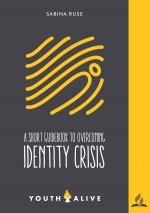Reading is a need, a pleasure, a torment, a joy, a way to learn, or a gate to rest. People read. Perhaps less than in the past, but the age of pages covered in words has not yet passed. From novels to specialty books, the pages still pass before us. But what is harder to establish is a long-term relationship with books.
A lot of external factors sometimes turn reading into a luxury, an intellectual pampering occasion destined only to a handful of people. Another category may be that of new readers, those who have discovered reading and want to go further into this enjoyable activity, but who feel like novices in the face of a challenge. On the other hand, the book market seems to be like a monster that goes beyond the self-confidence of many readers. For both categories, here are some tips and directions to address.
- Find the time. The most important factor in developing a habit of reading is to put aside a special time for this activity. Do not read only occasionally. Try to read every day at least a few pages of that novel you’ve been wanting to finish for so long. You do not necessarily have to pass the limit of 100 pages a day. Read as much as it’s comfortable for you and at the same time enough to convince you to come back the next day. Reduce the time you spend in front of the TV or other devices, time-thieves as they are par excellence.
- Find the space. Not everyone can read anywhere. Some people succeed and can use any free time to catch up on reading. If you can’t do this, create a place at home where you can read. Organize it in such a manner that it is comfortable and quiet, away from any sources of distraction. Use it until just the sight of it stirs your desire to read.
- Find the essence. Use the lecture to discover the depths of the book you carry in your hand. Any author tries to place between the covers of a book a lot of words of weight and meaning for life. When you read, try to find these main ideas and write them down. Be original and look for the most unique ways to mark your conclusions. Those thoughts can be useful to you in the future, and you will be glad that you made time to keep them when you were excited about them.
- Find an audience. Apparently reading is an activity that can be practiced by a single person. But this is not always the case. When you read something of impact and it makes you wonder, you can share your discoveries with others. Whether in virtual space or as part of a book club, books can expand their influence beyond the personal framework. You never know ‒ maybe a friend needs the book that impressed you too.
- Befriend the books. An essential element in befriending the books and reading them is to spend time with them. Visit the local library and befriend the librarians. They will be eager to open up to you new perspectives and to reveal you secrets and books you may not have discovered on your own. Then, stroll through the bookstores. Often finding yourself surrounded by books, you will always find an interesting title, a book that you would like to read and that attracts you. Write it down in a notebook and use it as an incentive to finish the book you have now on the nightstand.
Nevertheless, the most important conclusion is that the relationship between humans and books is special, different and unique. These few tips play the role of tasters, an unfinished sketch, of an adventure that can be extraordinary. Every reader who holds a book finds his path and discovers a new world. What is important is the first step.
For us Christians, the Bible is the source for a daily relationship with our Saviour and God. Ellen White suggests we should always keep the Bible with us: “As you have opportunity, read a text and meditate upon it. While walking the streets, waiting at a railway station, waiting to meet an engagement, improve the opportunity to gain some precious thought from the treasure house of truth. When a real love for the Bible is awakened, and the reader begins to realize how vast is the field and how precious its treasure, he will desire to seize upon every opportunity for acquainting himself with God's word. Its study will be restricted to no special time or place. And this continuous study is one of the best means of cultivating a love for the Scriptures.
Every part of the Bible is given by inspiration of God and is profitable. The Old Testament no less than the New should receive attention. As we study the Old Testament we shall find living springs bubbling up where the careless reader discerns only a desert. The book of Revelation, in connection with the book of Daniel, especially demands study.
The great motive powers of the soul are faith, hope, and love; and it is to these that Bible study, rightly pursued, appeals.”













